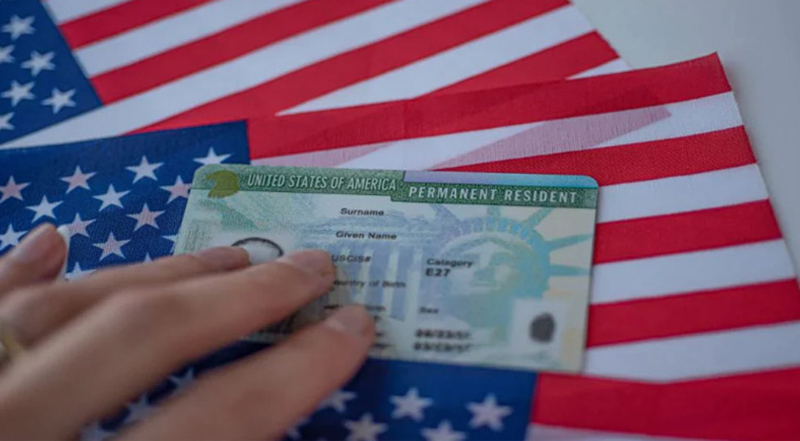 US
US Indian diaspora calls for employment authorization card reform in US
In a compelling plea for reform, the Foundation for India and Indian Diaspora Studies (FIIDS) has come to the defense of thousands of Indian-Americans who find themselves entangled in the decades-old green card backlog.
The organization is urging the Biden administration to take decisive action by relaxing the rules governing the issuance of employment authorization cards (EADs).
This call for reform aims to provide a lifeline to approximately 1.1 million Indian-origin non-immigrant visa holders who are waiting for their priority dates to become current, enabling them to apply for an I-485 for a green card.
The heart of the issue lies in the seven percent country-wise limit, which restricts the annual approval of green cards for Indian immigrants. This limitation has resulted in an agonizing 135-year delay, and tragically, more than 400,000 individuals may never see permanent residency in their lifetime. This backlog is not just a matter of bureaucratic inconvenience; it is a pressing humanitarian issue that warrants immediate attention.
FIIDS Chief of Policy and Strategies, Khanderao Kand, emphasizes the importance of recognizing the contributions made by these individuals and their families to the United States’ economy, innovation, and diversity. Kand emphasizes, “Recognizing the imperative of maintaining America’s competitive advantage, it is crucial to acknowledge the immense contributions these individuals and their families make to the nation’s economy by driving innovation and enhancing diversity.”
Moreover, he underscores the humanitarian aspect, stating, “Furthermore, on humanitarian grounds, it is pertinent to avoid a situation where these individuals find themselves in a status akin to indentured laborers.”
FIIDS has presented a clear and practical set of proposals to the Director of the US Citizenship and Immigration Services (USCIS), Ur Jaddou, in their quest for reform:
For Employment-Based Applicants: Grant EADs to I-140 approved applicants for a duration of five years without necessitating waiting for I-485 processing. This measure would provide much-needed stability and flexibility for these skilled workers and their families.
For Spouses of Applicants: Follow the precedent set by the announcement on September 27 and provide five years of auto-renewal EADs to H4-EAD spouses. This step ensures that spouses can contribute independently and gain freedom from the uncertainty that currently plagues their status.
For Documented Dreamers: Allow H4-EAD and extend their visa coverage from 21 years to 25 years, providing them with a stable status until they can pursue their own immigration path. This move recognizes the aspirations and potential of young individuals caught in the immigration quagmire.
Kand urges the USCIS to consider these appeals with the utmost urgency, emphasizing the human aspect of the prolonged immigration delays and the remarkable potential these individuals bring to American society.
“Implementing these changes would not only alleviate the immense pressure faced by these families but also fortify the United States as a nation that values and nurtures talent and diversity,” Kand wrote.
The plight of Indian-American families stuck in the green card backlog is a story of talent, aspiration, and determination caught in a web of immigration bureaucracy.
As the nation grapples with the consequences of these delays, the call for reform represents an opportunity for the Biden administration to demonstrate its commitment to fairness, diversity, and the pursuit of the American dream for all.
The ball is now in the court of the USCIS, and the hopes and aspirations of thousands hang in the balance.
(Photo and text credit: Khalsavox.com)
Support Our Journalism
We cannot do without you.. your contribution supports unbiased journalism
IBNS is not driven by any ism- not wokeism, not racism, not skewed secularism, not hyper right-wing or left liberal ideals, nor by any hardline religious beliefs or hyper nationalism. We want to serve you good old objective news, as they are. We do not judge or preach. We let people decide for themselves. We only try to present factual and well-sourced news.







